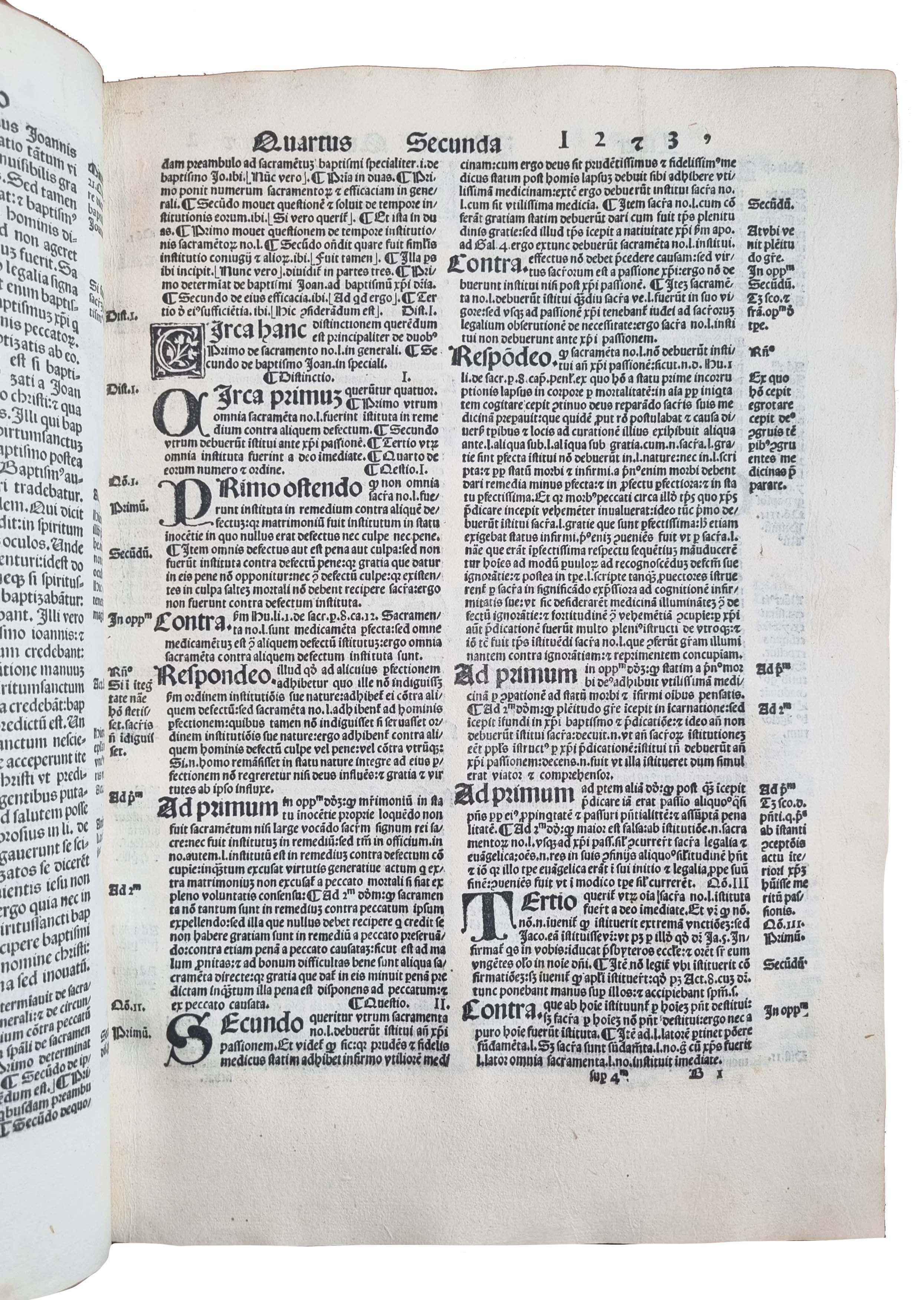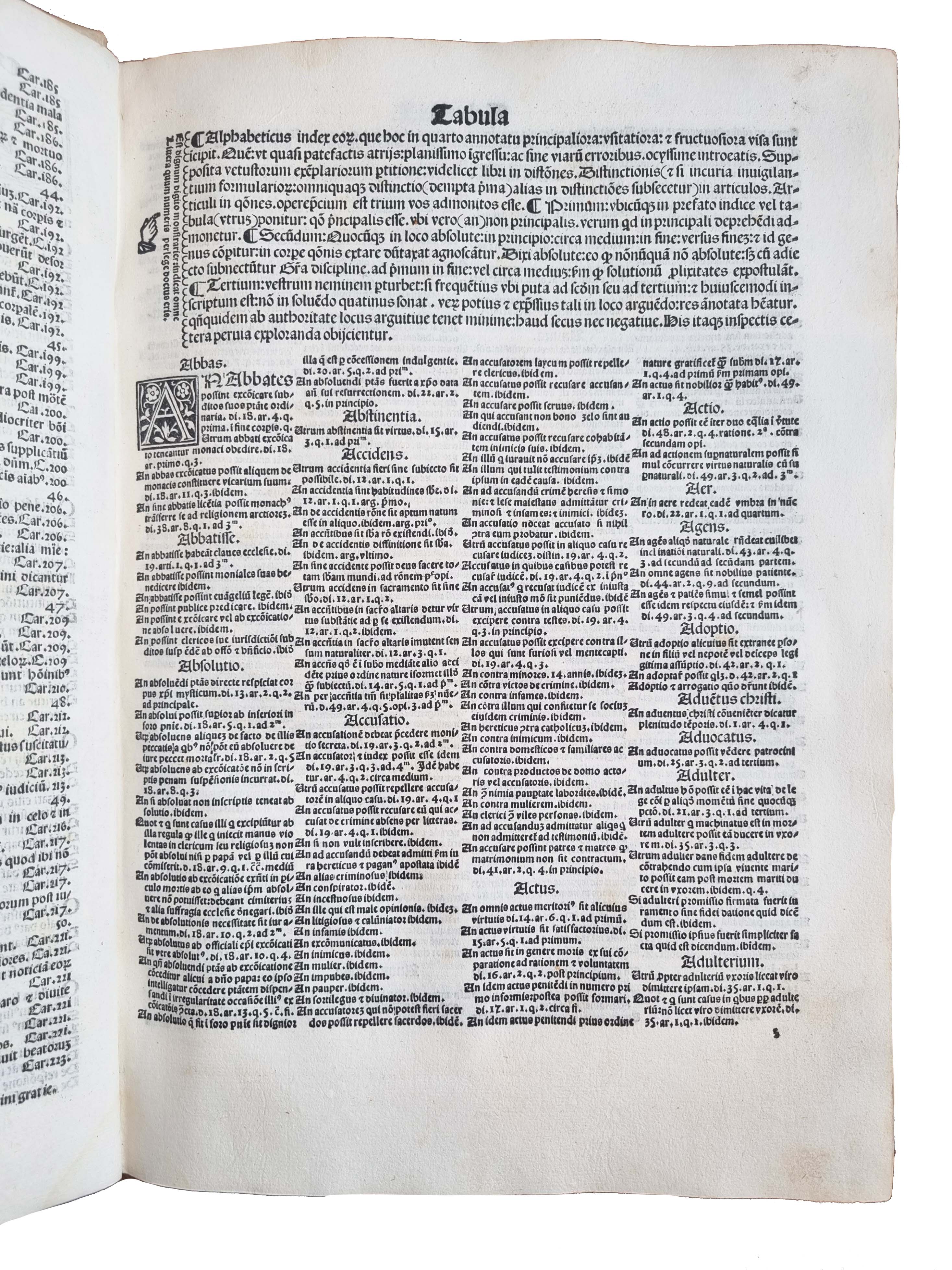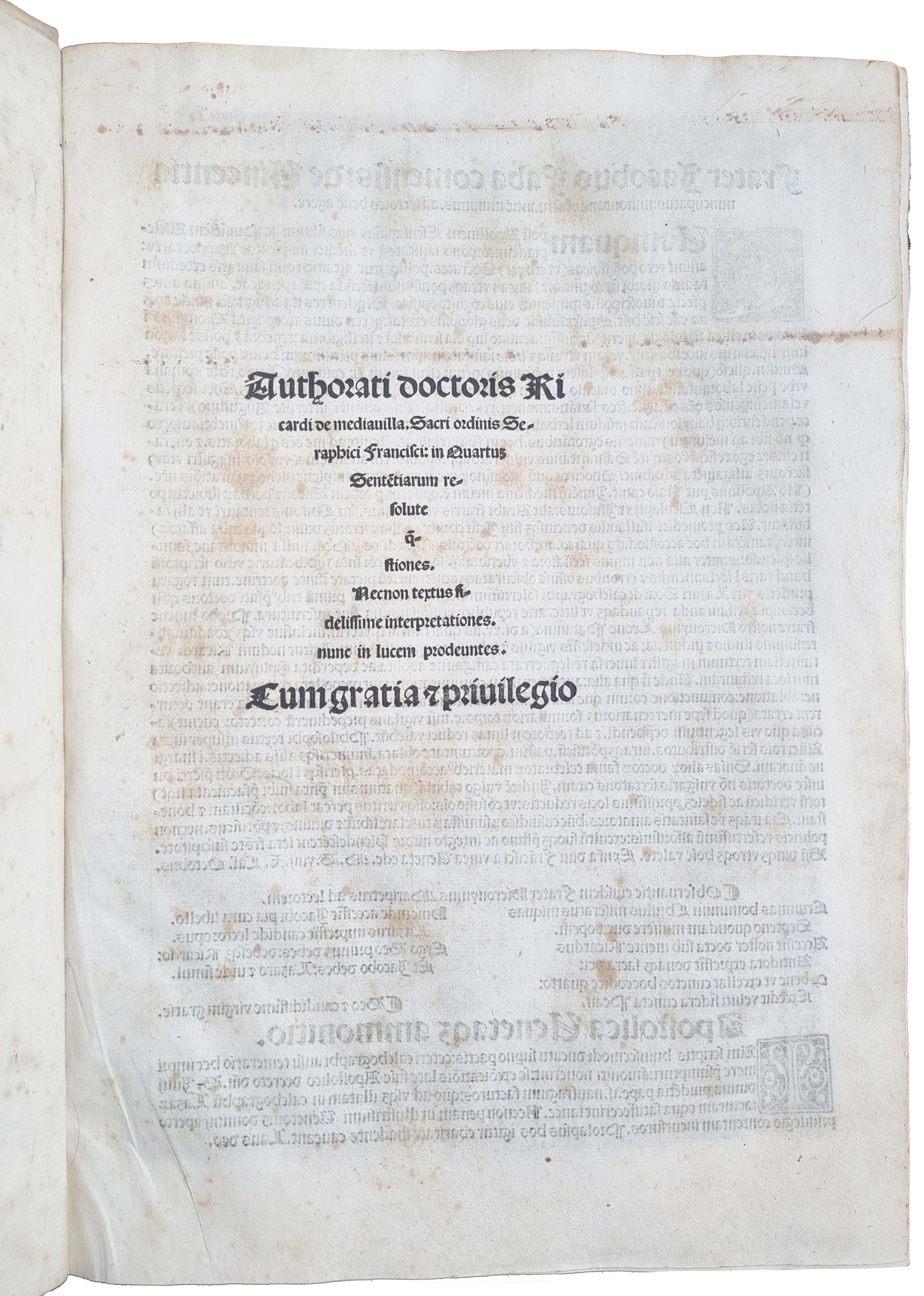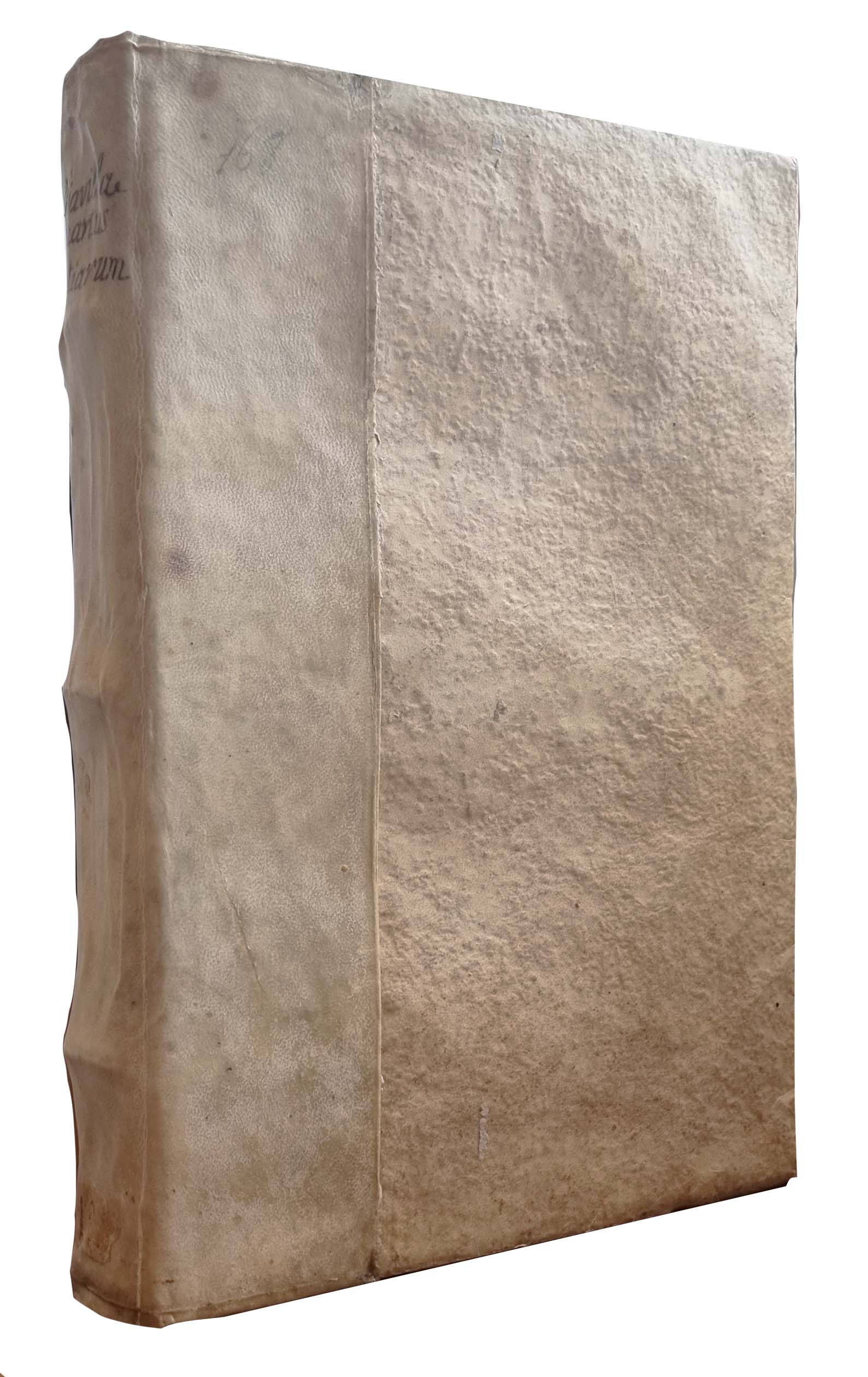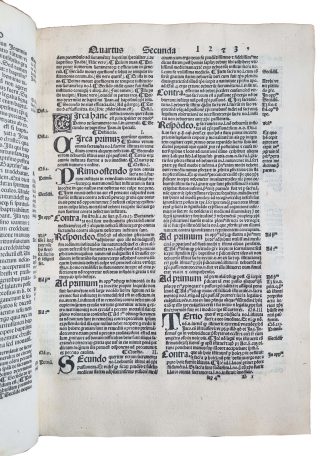MIDDLETON, Richard of
In quartus sententiarum resolute questiones [with] Questiones quodlibetales
Venice, Lazarus Soardus, 1509, 5th September, 10th July£3,250.00
2 works in one. Folio. ff [xii] 237; 43 [-blank f6]. Double column, Gothic letter in two sizes, plain and foliated woodcut initials, extensive printed sidenotes, publisher’s white on black device on verso of last. T-p a bit foxed, infrequent contemp. manuscript notes, underlinings, small hole affecting a very few letters to A2, faint dampstain towards outer margins in a few quires. A very good, clean, well-margined copy in contemporary vellum, slightly later vellum spine superimposed. Early paper library label and title to spine, edges speckled red and black.
Rare edition by Benzonus of Middleton’s commentary on the fourth book of Peter Lombard’s great ‘Sentences,’ accompanied by ‘Quodlibeta,’ related disputations. It was one of very few works by an Englishman of sufficient reputation to be internationally printed in the incunable and post-incunable periods. The fourth book covers ‘the sacraments in general, the seven sacraments in particular, and the four last things, death, judgement, hell, and heaven.’ (Catholic Encyclopaedia).
The Quodlibeta were answers to scholarly questions posed by pupils or by interested parties. They address many and varied topics, religious and scientific, including one of the earliest discussions of hypnotism, auto-suggestion and telepathy. The possibility of resurrection, the nature of the human intellect, whether Peter sinned when he denied Christ, the meaning of ‘good luck’, if one has sinned having done something through direst necessity, and the morality of the marriage of two persons of wildly differing years i.a. are discussed.
The standard theological textbook of the medieval university, the Sentences ia a compilation of extracts from the Bible, religious Fathers (especially Augustine), and other sources of authority, and covers the whole body of theological doctrine to form the basis for virtually the entire field of Christian theology and its scholastic interpretation. It represented the first effort to bring together commentaries on the full range of theological issues on a systematic basis, and present different views on complex theological points. A commentary on the Sentences was required of every aspiring master of theology, making it the predominant non-Biblical work most commented on up to the 16th C and Middleton’s was regarded as a leader in the field.
Richard of Middleton (c. 1249 – 1302) was a Franciscan friar, theologian and philosopher. His works pioneer the move away from a strict Augustinian theology to a more scholastic one. Known as ‘doctor solidus et fundatissimus,’ he was a friend of Duns Scotus, who also composed a commentary on the Sentences. Perhaps the most famous argument Middleton advances in this commentary (first published in 1489) is his fierce opposition to the ordination of women. As well as the more conventional objections to the weak and emotional character and submissive nature of women rendering them wholly unfit for office, he also advances the compelling argument that women cannot be ordained, as the tonsure which is required for minor orders would not be suitably becoming to females.
This edition, published as part of a 4 volume series between 1507 and 1509, is significantly expanded from the Gregorii editions of 1489 and 1499, and is the most complete Mediavilla commentary on the final, and arguably most theologically significant, section of the Sentences.
BM STC It. p554. Shaaber R36 (11 places). Adams M1422 & M1425In stock


